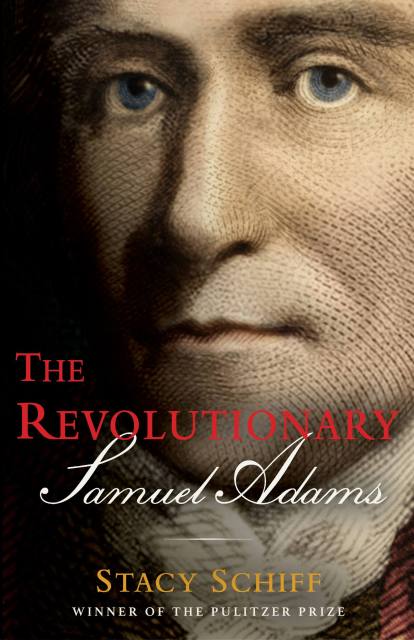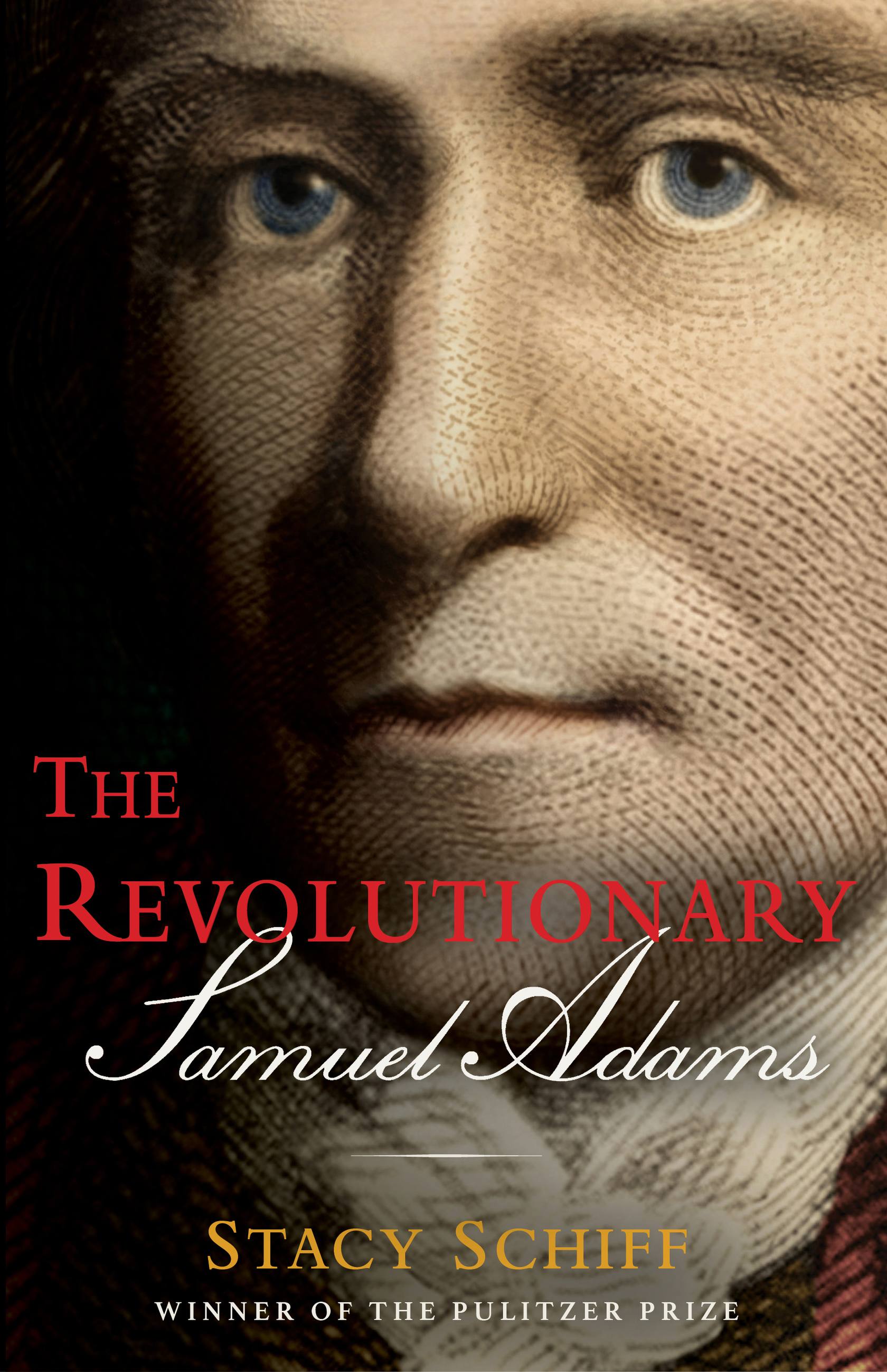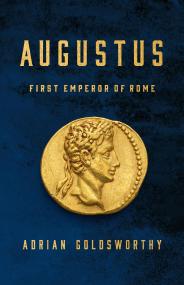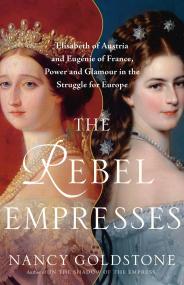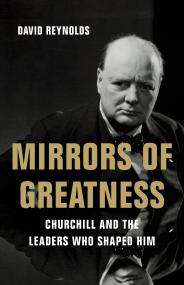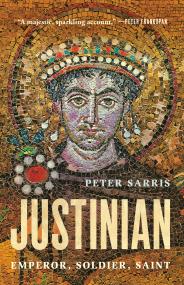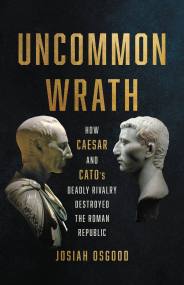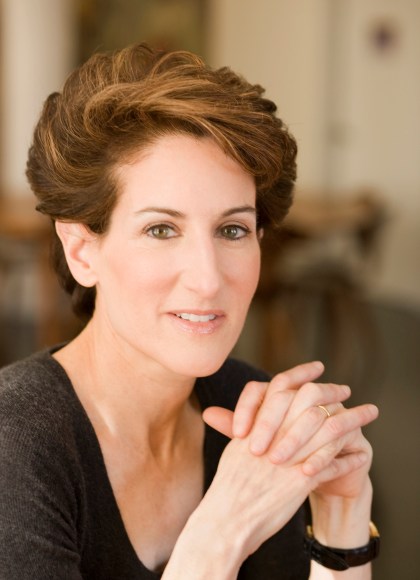By clicking “Accept,” you agree to the use of cookies and similar technologies on your device as set forth in our Cookie Policy and our Privacy Policy. Please note that certain cookies are essential for this website to function properly and do not require user consent to be deployed.
The Revolutionary: Samuel Adams
Contributors
By Stacy Schiff
Formats and Prices
- On Sale
- Oct 25, 2022
- Page Count
- 432 pages
- Publisher
- Little, Brown and Company
- ISBN-13
- 9780316441117
Price
$35.00Price
$44.00 CADFormat
Format:
This item is a preorder. Your payment method will be charged immediately, and the product is expected to ship on or around October 25, 2022. This date is subject to change due to shipping delays beyond our control.
Buy from Other Retailers:
This “glorious” revelatory biography from a Pulitzer Prize winner is about the most essential Founding Father (Ron Chernow)—the one who stood behind the change in thinking that produced the American Revolution.
Thomas Jefferson asserted that if there was any leader of the Revolution, “Samuel Adams was the man.” With high-minded ideals and bare-knuckle tactics, Adams led what could be called the greatest campaign of civil resistance in American history. Stacy Schiff returns Adams to his seat of glory, introducing us to the shrewd and eloquent man who supplied the moral backbone of the American Revolution. A singular figure at a singular moment, Adams amplified the Boston Massacre. He helped to mastermind the Boston Tea Party. He employed every tool available to rally a town, a colony, and eventually a band of colonies behind him, creating the cause that created a country. For his efforts he became the most wanted man in America: When Paul Revere rode to Lexington in 1775, it was to warn Samuel Adams that he was about to be arrested for treason. In The Revolutionary: Samuel Adams, Schiff brings her masterful skills to Adams’s improbable life, illuminating his transformation from aimless son of a well-off family to tireless, beguiling radical who mobilized the colonies. Arresting, original, and deliriously dramatic, this is a long-overdue chapter in the history of our nation.
ONE OF WALL STREET JOURNAL‘S 10 BEST BOOKS OF 2022 ONE OF LOS ANGELES TIMES TOP 5 NONFICTION BOOKS OF 2022 ONE OF THE NEW YORK TIMES MOST NOTABLE BOOKS OF 2022 ONE OF BARACK OBAMA’S FAVORITE BOOKS OF 2022 And named one of the BEST BOOKS OF 2022 by The New Yorker, TIME, Oprah Daily, USA Today, New York Magazine, Air Mail, Boston Globe, and more!
“A glorious book that is as entertaining as it is vitally important.” —Ron Chernow
“A beautifully crafted, invaluable biography…Schiff ingeniously connects the past to our present and future, underscoring the lessons of Adams while reclaiming our nation’s self-evident truths at a moment when we seemed to have forgotten them.” —Oprah Daily
-
"With incomparable wit, grace, and insight, Stacy Schiff narrates the birth of the American Revolution in Boston and the artful, elusive magician who made it all happen: Samuel Adams. For too long, Adams, hiding behind his many masks and stratagems, has evaded historians, but Schiff draws him from the shadows into the spotlight he so richly deserves. A glorious book that is as entertaining as it is vitally important. This is a time for Americans to meditate on the fate of their republic and no better place to start than here, at the beginning, with this book."Ron Chernow
-
"A beautifully crafted, invaluable biography. . .Schiff ingeniously connects the past to our present and future, underscoring the lessons of Adams while reclaiming our nation’s self-evident truths at a moment when we seemed to have forgotten them."Oprah Daily, "Favorite Books of 2022"
-
"A superb new biography of Samuel Adams...Adams was...a patriot — maybe the most crucial patriot. The Revolutionary is not merely a dutiful exhumation of a poorly remembered Founding Father, it's a thrilling, timely account of how the American Revolution happened; how the colonists were radicalized and came to think of themselves not as Bostonians or Virginians, but as "Americans." The Revolutionary is informed on every page by scholarship, but Schiff, as Adams himself did, knows how to hold an audience.”Maureen Corrigan, NPR
-
"Stacy Schiff continues to showcase her command of the genre, thoroughly researching her books and breathing new life into history. In The Revolutionary: Samuel Adams, Schiff re-introduces readers to the founding father. Adams is considered to be historically overlooked, and Schiff reveals that that may have been intentional: the statesman and political philosopher destroyed countless documents and most of his personal correspondence. This book, at times brimming with drama, carefully sifts through the remaining materials to build a robust portrait of an important patriot."Laura Zornosa, TIME ("100 Must-Read Books of 2022")
-
"[With] exquisite, fact-based prose… Stacy Schiff has produced a delightfully enthralling and insightful account of an elusive Founding Father. A tour de force.”Mark G. Spencer, The Wall Street Journal
-
"Schiff...is a master biographer....These pages contain great drama and constant motion...To read this book is to immerse oneself in a very particular and thrilling time and place. Boston in the years leading up to 1776 was a wild and often dangerous city, with violent protests and brawls and raucous meetings of the people. This is how a democracy was born, a government by and for the people, at least in theory. With Adams as her fulcrum, Schiff vividly returns us to the streets and halls where it all began.” (4 Stars)Chris Vognar, USA Today
-
"Riveting, suspenseful, and even laugh-out-loud reading, as Adams outflanks the British at every turn. . . A vivid and evocative writer, Schiff excels in her portrayal of Boston in its agony and anger. . . Superb.”Mary Ann Gwinn, Minneapolis Star Tribune
-
“Beer drinkers know founding father Sam Adams as a brewer and a patriot; Pulitzer winner Schiff emphasizes a man of action who “muscled words into deeds” in the cause of American independence. Retracing Adams’s early years in Boston and his political awakening, Schiff vividly recounts major events in the lead-up to the Revolutionary War, making for a fast-paced and enlightening account.”Publishers Weekly, Gift Guide
-
"An enthralling portrait…any book from the Pulitzer Prize-winning Schiff is reason for excitement. Her previous subjects have established her as one of the most talented and creative biographers at work today. Readers interested in the American Revolution or the ability of individuals to destabilize political institutions will find her new book rewarding...[and] will likely find themselves agreeing with John Adams, who said, 'Without the character of Samuel Adams the true history of the American Revolution can never be written.'"Amy S. Greenberg, New York Times Book Review
-
"A wildly entertaining exploration of the roots of American political theatre."Adam Gopnik, The New Yorker
-
"Stacy Schiff has mastered the art of writing thoroughly researched, often captivating biographies, breathing new life into history. (She won the Pulitzer Prize in biography in 2000 for her biography of Vera Nabokov.) For her latest act, Schiff re-introduces readers to Samuel Adams, considered to be one of the more historically overlooked of the founding fathers. And that, in fact, may have been intentional: Adams destroyed most of his personal correspondence and countless documents, preferring to move inconspicuously. This biography, at times brimming with drama, carefully sifts through the limited remaining materials available to build a hearty portrait of a founding father.”Lily Rothman, TIME
-
"This enthralling biography is a persuasive exercise in rehabilitation. Through stylish prose and a close reading of Adams’s career as a canny propagandist, Schiff suggests that he may have done more than any other founder to prime colonists for armed rebellion and deserves to be better known."Gregory Cowles, New York Times, Editors' Choice
-
"Schiff traces these political cuts and thrusts with her customary skill and amazing readability; this is by far the most grippingly involving life of Samuel Adams ever written, charting the rise and flourishing of a key figure in the Revolution... All of those facets of the man are beautifully captured in The Revolutionary."Steve Donoghue, Christian Science Monitor
-
"Step aside, Thomas Jefferson; let’s talk about the man whose devotion to resistance behavior makes him, for some, the most essential figure in the American Revolution. Samuel Adams comes to electrifying life through this Pulitzer Prize-winning historian’s meticulous research and dynamic storytelling as a man of principle and persuasion. There was also Adams’ devotion to stealth and secrecy, which may be why it’s taken so long to tease out his unusual story."Bethanne Patrick, Los Angeles Times
-
"Schiff masterfully chronicles the myriad twists and turns of Adams’s life…[and] understands how to translate even the most knotty history into quick-paced narrative. There is something about Samuel Adams that seems especially compelling today....We forget him and his ideas, it seems to me, at our peril."Kate Tuttle, The Boston Globe
-
"It’s hard to put down without a newfound appreciation for just how important [Adams’] role was for the nation’s birth.”Andrew DeMillo, Associated Press
-
“Stacy Schiff is one of our finest biographers, able to explore and illuminate lives as diverse as those of Cleopatra and Antoine de Saint-Exupéry. Samuel Adams, is an exhilarating read, bringing to life a man often overshadowed by other Founding Fathers.”Jim Kelly, Air Mail
-
"A bold new telling of the forgotten Founder."Smithsonian Magazine
-
“Schiff’s new biography is a good place to start to get one’s bearings on this fascinating Founding Father.”Republican American
-
“The inimitable Stacy Schiff, author of utterly captivating books…returns with a biography of one of the most pivotal and oddly neglected of all the U.S. Founding Fathers: Samuel Adams, cousin to the more famous politician (and second president) John. Schiff’s book finds the real man behind the Revolutionary mythos.”Christian Science Monitor
-
“A new book from Pulitzer Prize–winning, powerhouse historian Schiff is always an event.”Booklist
-
"In her terrific new biography, Pulitzer Prize-winning historian Stacy Schiff presents readers with a vivid sense of this complicated man. Electrifying. . . Schiff writes with keen insight and wit throughout. By the end of The Revolutionary, attentive readers will vibrate with questions about the parallels between Adams’ political era and our own."BookPage (starred review)
-
"Revelatory and frequently riveting...Throughout, Schiff vividly recounts major events in the lead-up to the Revolutionary War, including the Stamp Act Crisis, the Boston Massacre, and the Boston Tea Party, and draws incisive sketches of Loyalist governor Thomas Hutchinson, Patriot lawyer James Otis, and others. Fast-paced and enlightening, this is a must-read for colonial history buffs."Publishers Weekly (starred, boxed review)
-
"Schiff is one of the most formidable nonfiction writers working today.”BookRiot
-
"This is a meticulously researched and often eloquent work of historical biography… Schiff offers a welcome, fresh study featuring notions of liberty and democracy that feel particularly relevant in today’s consistently tumultuous political landscape."Kirkus Reviews
-
“After I put down The Revolutionary: Samuel Adams, I wanted to pick it up and read it over again from the beginning, if only from the pleasure of the prose. . . Read this book if you wish to know how, historically speaking, thirteen English colonies became the United States.”Robert Knox, Medium.com
-
PRAISE FOR THE WITCHES:
-
"An oppressive, forensic, psychological thriller: J. K. Rowling meets Antony Beevor, Stephen King, and Marina Warner... Schiff’s writing is to die for.”The Times (London)
-
“Every page of The Witches is almost scandalously pleasurable, the phrases rising, cresting and falling like all the best incantations. [Schiff] casts a spell on you.” (4 Stars)Jocelyn McClurg, USA Today
-
"Schiff brings to bear a sensibility as different from the Puritans’ as can be imagined: gentle, ironic, broadly empathetic, with a keen eye for humor and nuance. Thanks to this, and to Schiff’s narrative gifts, the present-day reader flits above New England’s smoky chimneys and thatched rooftops... it is wizardry of a sort—in a flash of brimstone, a whole world made wondrously visible.”The Atlantic
-
“Haunting...the first major commercial nonfiction book on the subject in decades...Ms. Schiff instead delivers an almost novelistic, thrillerlike narrative of those manic nine months. By sidestepping most of the popular theories, The Witches...stands out from much of the existing literature.”The New York Times
-
"[Schiff's] research is impeccable; no previous writer has scoured the documentary record to such great depth. Moreover, she has mastered the entire history of early New England—from long before to well after the year of the witch-hunt....Indeed, readers may experience her narrative as a virtual tour of the time and place....Schiff’s skills as a writer extend to such formal matters as structure, pacing, and point of view...she maintains throughout the authority of an omniscient narrator who is firmly in charge.”John Demos, The New York Review of Books
-
"Engagingly thorough, thrillingly told and bracingly authoritative."Jean Zimmerman, NPR
-
"As in her Pulitzer Prize-winning biography of Cleopatra, Schiff excels at finding fresh angles on familiar stories, carries out massive research and then weaves it into a dazzling social panorama. In Henry James’s phrase from The Art of Fiction, she is a writer on whom nothing is lost....a superb account of the Terror of Salem."Elaine Showalter, Washington Post
-
PRAISE FOR CLEOPATRA:
-
"A masterpiece...[Schiff] has brought to life Cleopatra."Michael Korda, The Daily Beast
-
“A work of literature.”Judith Thurman, The New Yorker
-
“Enthralling.”Maureen Dowd, The New York Times
-
“Stacy Schiff is that rare combination: a first-rate historian and a brilliant storyteller. Using a wide range of sources, she spins straw into gold, conjuring the world of Ptolemaic Egypt in full vibrant color, and returning the voice of one of the most powerful, fascinating, and maligned women in history. Cleopatra is impossible to put down.”Rick Riordan, author of Percy Jackson & the Olympians series
-
"Ms. Schiff strips away the accretions of myth that have built up around the Egyptian queen and plucks off the imaginative embroiderings of Shakespeare, Shaw and Elizabeth Taylor. In doing so, she gives us a cinematic portrait of a historical figure far more complex and compelling than any fictional creation, and a wide, panning, panoramic picture of her world."Michiko Kakutani, New York Times
Newsletter Signup
By clicking ‘Sign Up,’ I acknowledge that I have read and agree to Hachette Book Group’s Privacy Policy and Terms of Use
